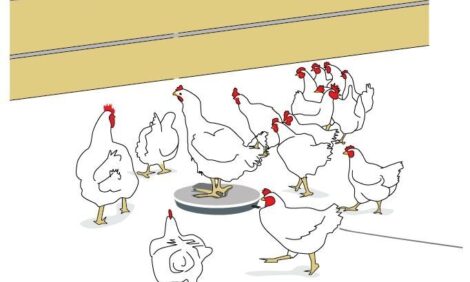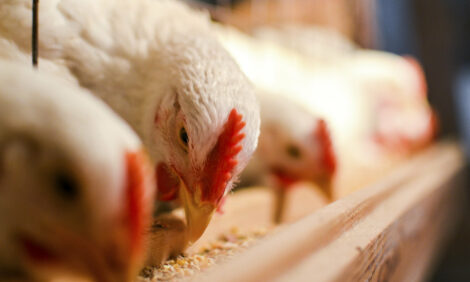



Study: Live S. Typhimurium vaccine reduces S. Infantis colonization
Investing in vaccination programs to develop cross-protection against some of the most common strains of Salmonella could help limit the number of foodborne outbreaks of the pathogen, according to a poultry expert.Charles Hofacre, DVM, PhD, president, Southern Poultry Research Group Inc., said increases in drug-resistant foodborne outbreaks of Salmonella highlighted the need for everyone in the broiler sector to work on reducing incidences of the pathogen.
And he said that vaccinating broilers and breeders could help limit multiple types of Salmonella seen in processing plants, which could in turn reduce food-safety issues.
Speaking to Poultry Health Today, Hofacre said live Salmonella vaccines have been shown to stimulate birds’ immune systems to protect against multiple serotypes.
With vaccines against S. Typhimurium — a group B serotype — already proven to work well against S. Enteritidis — a group D serotype — Hofacre wanted to find out if it could have similar success against S. Infantis, which is a group C1 serotype.
To test the vaccine’s efficacy, in a trial birds were sprayed with a S. Typhimurium vaccine at day of age and given a booster at 14 days in their drinking water.
At 30 days, half of the birds were challenged with S. Infantis, while the rest were allowed to pick up the bacterium naturally, just as they would in a broiler house.
“Those birds we gave it to seed it to the litter, and then the pen mates pick it up,” Hofacre explained.
“So it gives us the opportunity to determine [if] the vaccine helped reduce the amount of colonization in the birds that directly got the Salmonella, [and if it helped] those birds that were horizontally exposed become infected as quickly.”
Environmental samples were taken at processing age — before feed was withdrawn 8 hours before processing — while bird samples were taken from carcass rinses and from the ceca, liver and spleen.
“What we found was that we had a high prevalence in the boot socks in each of the pens,” Hofacre said. “So, the broiler house was very positive for Salmonella, which was not surprising.”
In the birds that weren’t directly challenged but were in the pen with challenged birds, there was a reduction in infection, he added.
“In the internal organs, especially the liver and spleen, we saw a significant reduction in Salmonella in those livers and spleens in birds both directly challenged and indirectly challenged.”
The significance of that reduction goes back to breeders, Hofacre explained.
With breeders vaccinated with the same live Salmonella vaccines, when they begin to lay eggs lower levels of the pathogen will have colonized in their internal organs — meaning less of the bacterium will reach their offspring.
In addition, research by scientists at the University of Georgia has indicated that internal colonization of the liver, spleen and bone marrow could be a source for Salmonella contamination in ground or mechanically separated poultry meat.
“If we can reduce that internal-organ colonization, we may have a reduction in the risk for ground poultry products,” he added.
Hofacre indicated results of the study were conclusive in demonstrating that the live S. Typhimurium vaccine reduced S. Infantis, especially on the liver and spleen positives.












